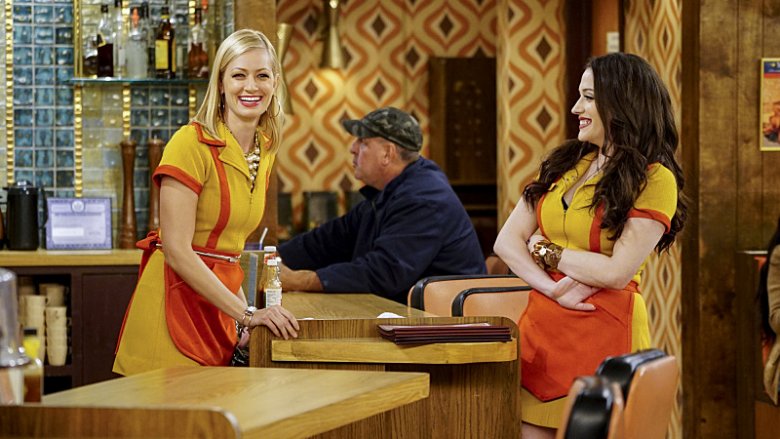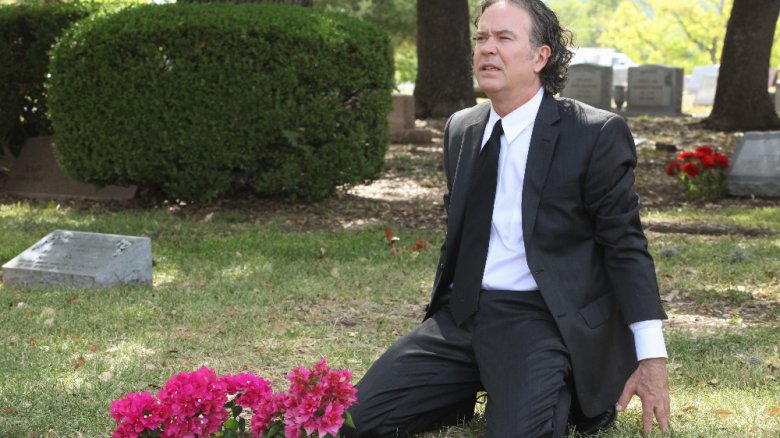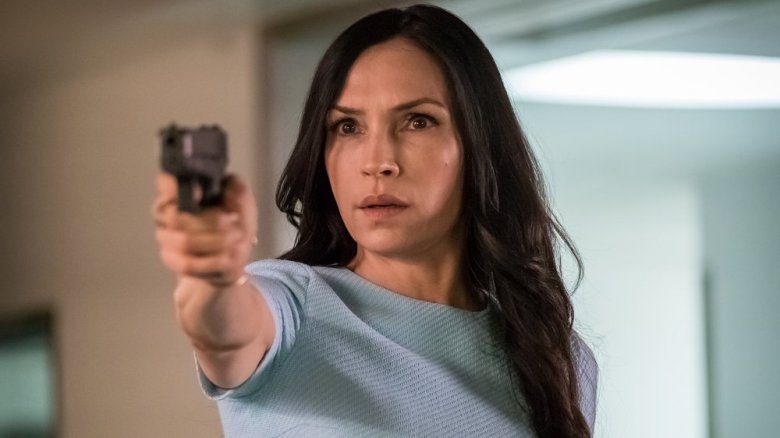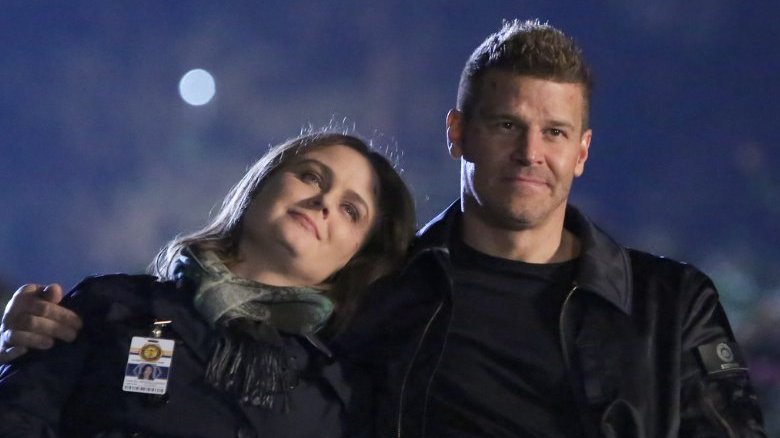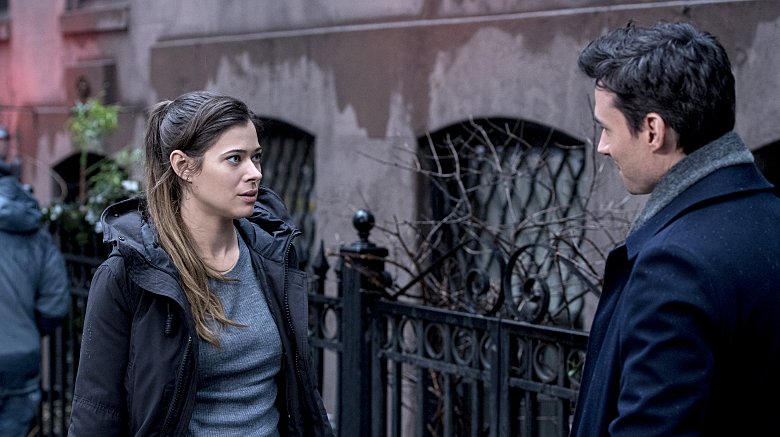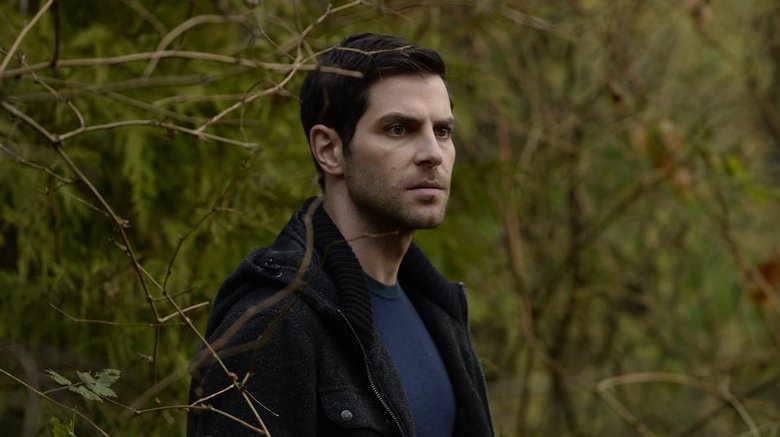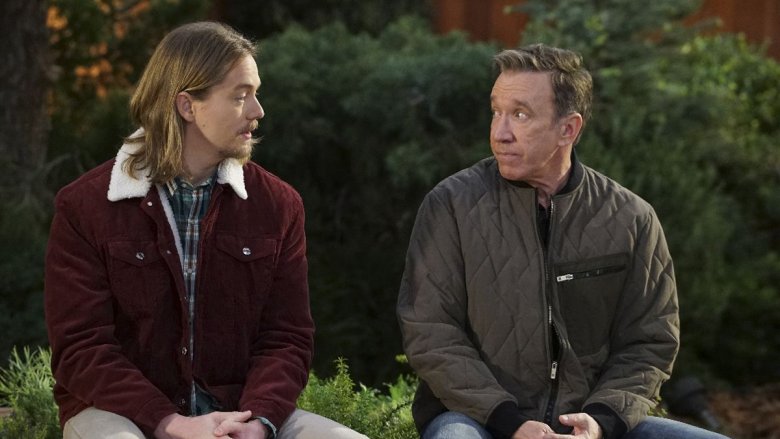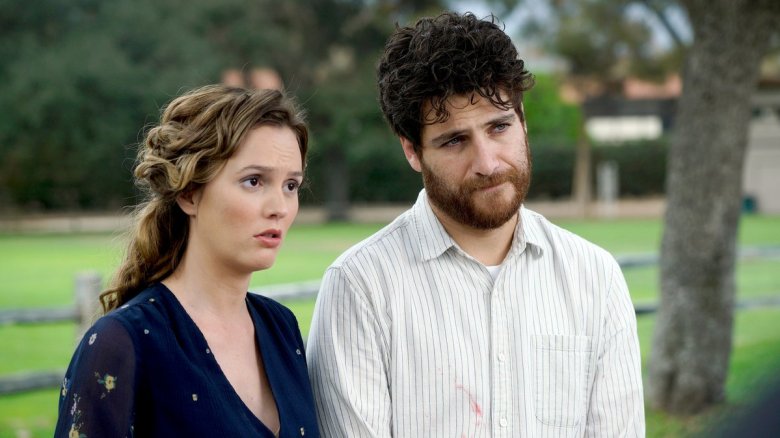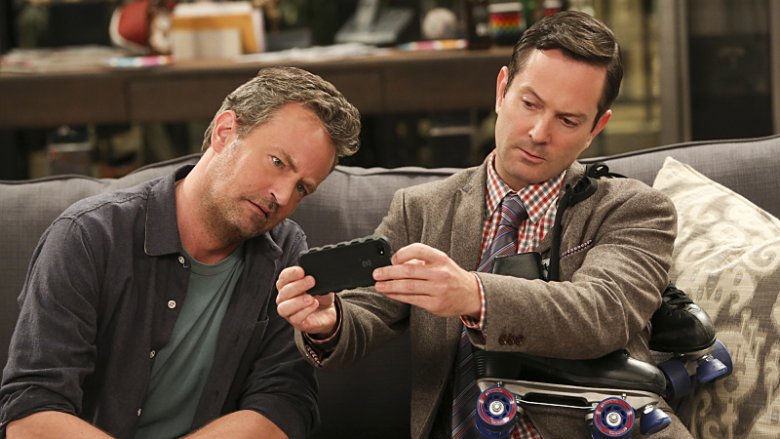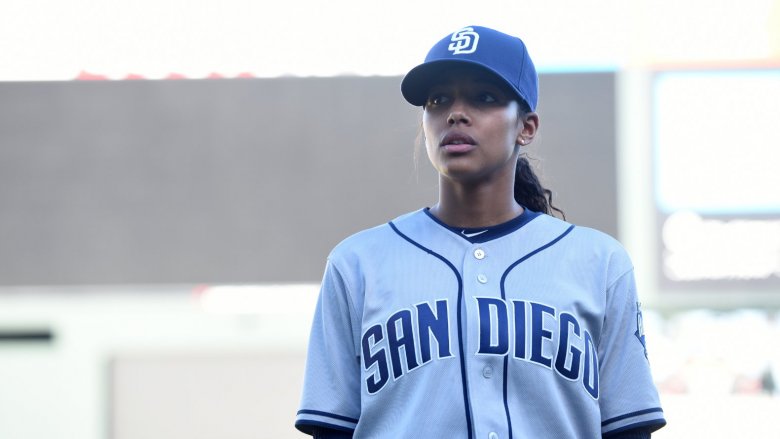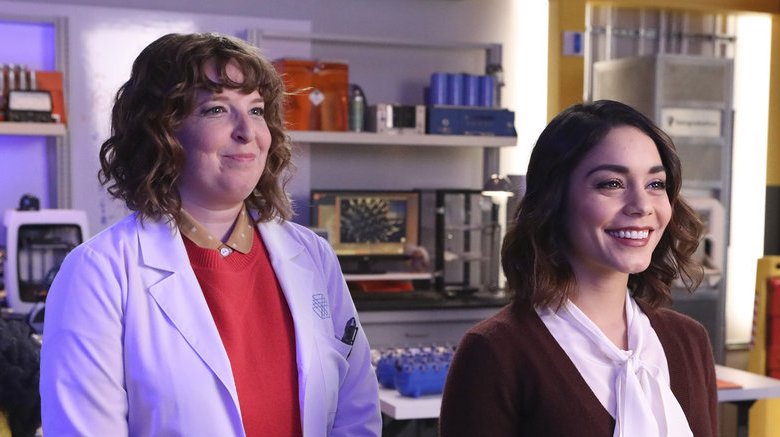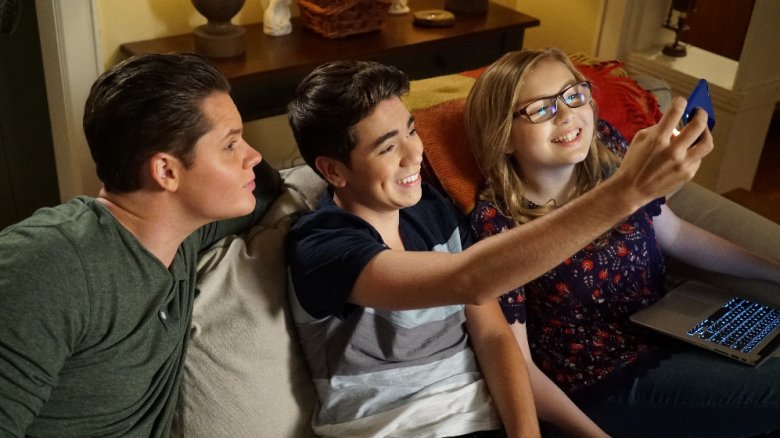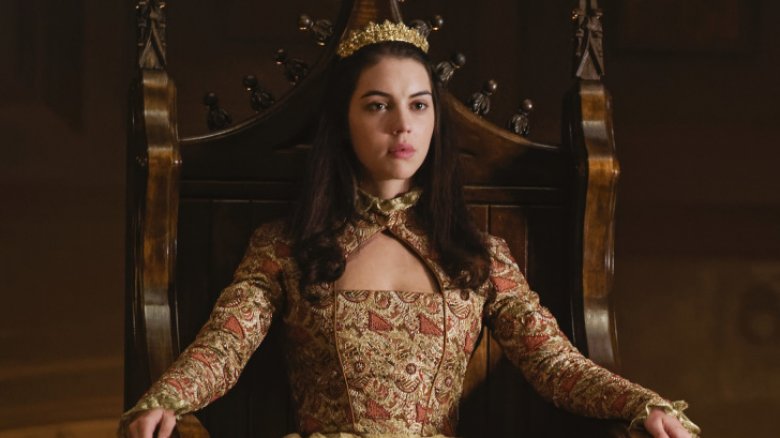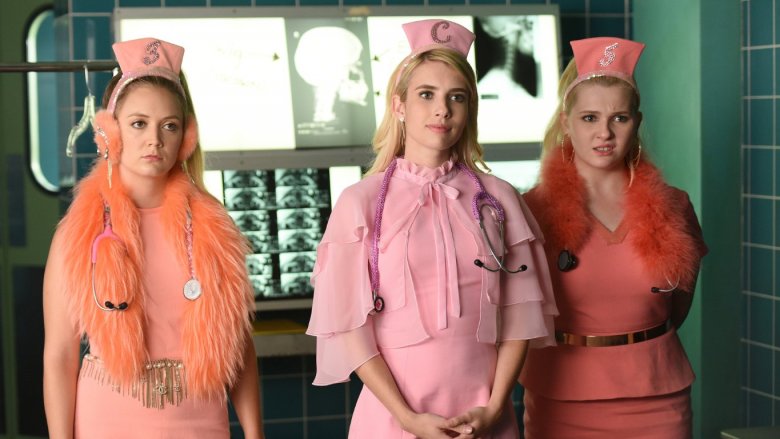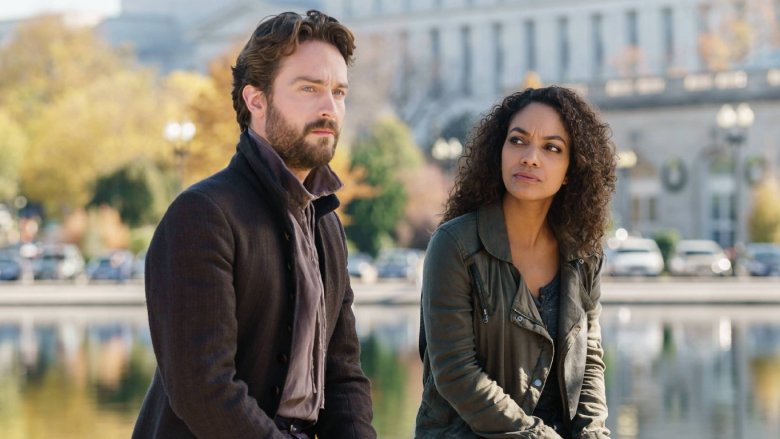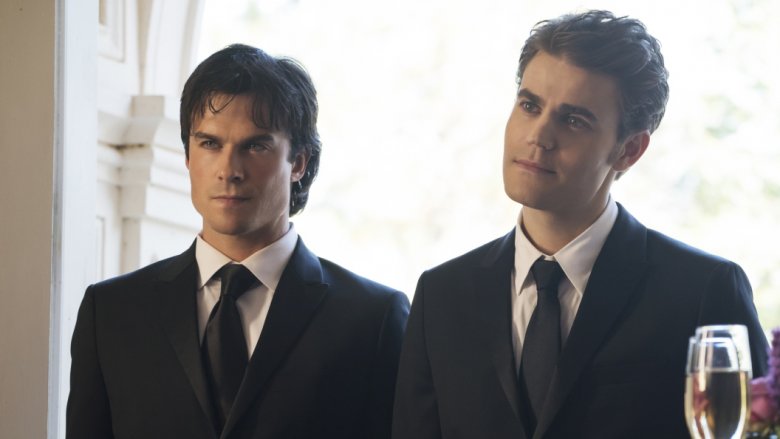Some Of Your Favorite TV Shows Won't Return This Fall
The axe fell heavy from the broadcast networks this season, with everything from returning hits to freshman series falling victim to declining ratings and increased competition from cable and streaming services. It's hard to keep up with all the renewal, cancelation, and series pick-up news, so to help you informed as to whether your faves will be off the air when the new season picks up, we've rounded up some well-loved shows that won't be returning this fall.
2 Broke Girls
The writing was on the wall for 2 Broke Girls when it was left off CBS' massive list of show renewals in March, but it was still a surprise to see the long-running multi-cam go off the air for good. The series, which starred Kat Dennings and Beth Behrs as waitresses at a Brooklyn diner who dream of bigger things, was a consistent ratings performer, averaging seven million viewers and a 1.9 rating in the key 18 to 49 demo.
However, there were a few things standing in the show's way for renewal. Despite talk of a shortened, 13-episode season, 2 Broke Girls' fate came down to ownership. The series is produced by Warner Bros. rather than CBS in-house, and as the show aged, CBS had to shoulder more and more of the costs, making it less profitable. This, plus the network's already packed comedy slate, meant the fan favorite wouldn't make it past its sixth season.
American Crime
Five Golden Globe nominations weren't enough to save American Crime from getting the axe at ABC. The critical favorite didn't have the ratings to continue past its third season, despite being one of the network's biggest awards season draws.
The anthology series, which came from 12 Years a Slave's John Ridley, failed to catch on from its debut, but fared even worse with its most recent batch of episodes, averaging 3.2 million viewers and a 0.7 rating in the key demo. While there were reportedly discussions about doing a shortened, six-episode fourth season, they never panned out, and American Crime ended with a run of episodes focusing on poverty and exploitation in the United States.
The Blacklist: Redemption
Spinning off the James Spader hit The Blacklist seemed like a sure bet for NBC, but The Blacklist: Redemption never caught on with viewers. Redemption featured two marketable stars in The Blacklist's Ryan Eggold and X-Men's Famke Janssen, and the network was clearly hoping that the considerable fan base of the original series would move over to the spinoff.
It wasn't to be. The Blacklist is driven by Spader's alluring performance (which has earned him two Golden Globe nominations), something the new series couldn't replicate. The show averaged a 0.8 in the key 18 to 49 demo, not enough to keep it around in NBC's packed list of dramas.
Bones
Bones was given the chance to end with a shortened 12th season, but it wasn't the show's cast or crew who made the decision to take the fan favorite off the air. Despite the show's age, everyone who worked on Bones was enthusiastic to do more, with creator Hart Hanson saying the network called and informed them it was their last year. Hanson notes, however, that no one was "terribly upset or terribly shocked."
Regardless of the feelings of the cast and crew, the cancellation makes sense. Stars Emily Deschanel and David Boreanaz had contracts that ended after season 11, and a deal for more than just one more set of episodes likely would have been costly for the network. Returns on the show, which was consistently on the bubble throughout its run, were also dwindling, with ratings averaging around 4.8 million viewers and a 1.0 in the key demo, down significantly from its early seasons. While fans will miss Bones, it lived long enough to become one of Fox's longest-running dramas, an impressive feat for the perpetually almost-canceled procedural.
Frequency
The CW's Frequency seemed primed to be a hit for the teen-oriented network. The show, based on the 2000 cult favorite film of the same name, came from Supernatural's Jeremy Carver, a man who has proved he knows how to make a long-running series, and starred Peyton List, an actress who has been on the brink of breaking out for years. (Although List does have a penchant for starring in quickly canceled series, appearing in FlashForward and The Tomorrow People, both one season wonders.) However, something didn't quite click with the series, and it wasn't able to make it past season one.
Frequency's problem wasn't its reviews—the show earned a 75 percent on Rotten Tomatoes. However, a lack of advertising and a not-so-great time slot paired with the aging Arrow meant that Frequency never found an audience, averaging just 1.5 million viewers and a 0.4 rating. The series' fate was practically sealed when List signed on to lead CBS' Mission Control pilot; despite the fact that the show wasn't picked up, List's move clearly signified that the show was on its way out, but it was given a fitting end: the CW released an online epilogue.
Grimm
NBC didn't seem to give much respect to fans of the long-running supernatural series Grimm when they announced that the show's sixth season would be its last, burying the news amid a midseason premiere dates press release. The shortened final season only contained 13 episodes, and seemed more like fan service than anything else for the network, which shuffled the show to Friday nights for most of its run.
Grimm had a loyal fanbase and good reviews, but the network never really seemed to have faith in the show's ability to carry itself in tougher weeknight time slots, despite its average of roughly six or seven million viewers throughout its run. The fifth season averaged six million viewers, making it one of the highest-rated scripted shows on Friday nights, but its costs—and the network's seeming doubt about its appeal, as well as burnout in the creative team—ultimately prevented another season.
Last Man Standing
ABC's cancelation of the Tim Allen comedy Last Man Standing came as a bit of a surprise, as the show was a consistent ratings performer and contained a marketable lead in the former movie star. However, the series, which had been on the air for six seasons, didn't make it through the network's annual axing... and fans have a controversial theory as to why.
Some fans have alleged that Last Man Standing was canceled due to Allen's conservative politics, especially since the actor recently ignited backlash after comparing being a conservative in Hollywood to being a Jew in 1930s Germany. A Change.org petition calling for a boycott of ABC until the show is renewed has amassed tens of thousands of signatures and Allen seemed to agree that the cancelation was unfair, tweeting that he was "stunned and blindsided by the network I called home for the last six years."
ABC says the writing was simply on the wall for the show after they decided to stop doing a comedy block on Fridays and to start highlighting genre programming instead. (Marvel's Inhumans and Once Upon a Time will anchor Fridays come fall.) The show also struggled in the ratings, averaging 8.1 million viewers but only a 1.6 rating in the key 18 to 49 demo. More important, perhaps, was the fact that the show was produced by 20th Century Fox rather than ABC Studios; a desire to broadcast shows owned in-house has been an increasing factor in cancelations during recent years.
Making History
Even The Lego Movie's Phil Lord and Chris Miller couldn't save Making History. Despite the attachment of the two mega directors as executive producers on the Adam Pally-starring comedy, it wasn't able to make it past its freshman outing due to low ratings and a packed Fox comedy slate.
Making History had marketable stars in Pally, a favorite from the cult hit Happy Endings, and Gossip Girl's Leighton Meester. However, its complicated premise didn't lend well to traditional TV advertising, as the time-traveling series was hard to boil down into a 30-second commercial. It was critically well-received, earning a 92 percent on Rotten Tomatoes and quickly building a loyal fanbase, but its 2.1 million viewers and 0.9 rating weren't enough to warrant more.
The Odd Couple
The Odd Couple had an impressive pedigree. Developed by and starring Friends' Matthew Perry, the series was the former star's attempt to land a solid show after the quickly canceled Mr. Sunshine and Go On. The show seemed like a surefire hit, with Perry attached alongside sitcom staple Thomas Lennon and the name recognition of the original long-running TV adaptation.
While the show did better for Perry than his past attempts at leading TV roles, it didn't make it past its third season, as CBS made the decision to cancel the multi-cam to move on to some newer comedies. The series averaged just 5.9 million viewers and a 1.3 rating among viewers 18 to 49, and, despite the fact that it was produced by CBS, the low ratings and older skew brought Perry another disappointment. To add insult to injury, Perry apparently found out when he walked in to see his face had been painted over on the stage door— subtle, CBS.
Pitch
Pitch was primed to be a big hit, and for anyone who actually tuned into the baseball series, it's pretty clear why. The show had the right combination of sports and soap, along with a few established stars, including Ali Larter, Mark-Paul Gosselaar, and Mark Consuelos attached, and a buzzy new lead in Kylie Bunbury. It was also the first series to be partnered with the MLB, giving the show unique access to sports facilities.
However, bad scheduling sealed Pitch's fate. It started airing shortly before the highest-rated World Series in years, meaning baseball enthusiasts and casual fans of the sport already had something to watch when the show premiered. This may have been a big reason why it was never able to connect with the audience, earning around three million viewers and a 0.8 rating. Although the series received positive reviews and Fox executives said they were behind it, the ratings weren't there.
However, there could still be hope for Pitch fans. Executive producer Kevin Falls says he wants to pursue an epilogue episode, if he can convince Fox to pay for it and the actors to return. Considering the upset Bunbury expressed after the show was canceled, it seems like a possibility.
Powerless
Superhero shows are all the rage nowadays, so when NBC ordered a comedy from DC Comics, it seemed like a sure thing. Powerless was definitely a risk as the studio's first 30-minute comedy, but with nerd favorite Alan Tudyk and star Vanessa Hudgens on board, it seemed like it had a solid shot; unfortunately, it suffered from behind-the-scenes struggles early on, losing its creator before the premiere and undergoing a big shift in its premise.
These creative changes made viewers doubt the show early on, and they weren't reassured by the tonally uneven series that aired. The series wasn't a hit with critics, falling to a 64 percent on Rotten Tomatoes; although the show debuted to a solid three million viewers, it continued to fall throughout its run, dropping below two million by its sixth episode and below one million before the end of its run.
The Real O'Neals
ABC's sitcom The Real O'Neals got two seasons before getting the axe, but it nearly ended even earlier. ABC reportedly considered canceling or penalizing the sitcom, which got a large portion of its audience from LGBT viewers, after openly gay star Noah Galvin, who played a recently out teen in a Catholic family, did a controversial interview in which he criticized Teen Wolf star Colton Haynes' method of coming out and alleged that X-Men director Bryan Singer holds parties at his home with underage boys.
The Real O'Neals, which had already earned a second season by the time of the interview, lived to get a sophomore outing, but low ratings and continued backlash made season three impossible. The show was ABC's least watched comedy, averaging just 3.1 million viewers a week, and its stars had already signed on to other projects, with Matt Shively joining NBC's pilot Spaced Out (which wasn't ordered to series).
Reign
The CW has a history of keeping around low-rated shows, and Reign was no exception. While the series was never exactly a big hit, it had a solid fanbase and an interesting premise that made the network willing to keep it around for four seasons. However, the third season saw a quick dip in the ratings, averaging under one million viewers and a 0.3 rating in the demo, and, as multiple stars started to depart, the series' fate was sealed.
Fortunately for fans, Reign was given a 16-episode final season. Although official news of the cancelation didn't come until the series was about to film its season four finale, reports say that discussions with producers were ongoing, allowing the writers to wrap up the big storylines and give the show a proper ending while still opening up slots for newer, buzzier shows on the CW's fall schedule.
Scream Queens
Scream Queens had all of the makings of a hit. It came from American Horror Story and Glee creator Ryan Murphy and had big-name guest stars like Jamie Lee Curtis, Ariana Grande, and Nick Jonas attached, as well as marketable leads in Emma Roberts, Abigail Breslin, and Billie Lourd. The horror genre has done well on TV recently, and with Murphy at the helm, the show seemed just ridiculous enough to work.
Unfortunately for fans, it never really caught on. The show debuted to a respectable four million viewers but immediately dropped, falling to an average of 2.8 million viewers for its first season. This was enough to get it brought back for a second, but that fared even worse, falling to 2.3 million viewers and just a 1.0 rating in the key demo, which it should have been able to dominate. Fox execs say they believe the anthology series has wrapped up its storyline, and they're happy to let Murphy focus on his other hits instead.
Sleepy Hollow
Sleepy Hollow was one of the buzziest shows to debut during the 2013-14 season, amassing high viewership and amazing reviews during its freshman run. However, the show quickly fell from those heights, undergoing creative struggles in season two (resulting in the departure of showrunner Mark Goffman) that only got worse as the show continued.
With star Nicole Beharie leaving after season three, the show tried to spark a resurgence by moving its location and introducing new characters, but the plot failed to catch on with fans. The show fell to an average of 3.2 million viewers and a 0.9 in the 18 to 49 demo during its fourth season, down from 13.6 million viewers for its season one premiere, making it a disappointing property for Fox as it continued to fall.
The Vampire Diaries
The Vampire Diaries closed its pages for good after its eighth season, taking one of The CW's most consistent performers off the air. Fans of the show were happy that it got to say goodbye on its own terms, but many were still upset to see the series, which still enjoyed good ratings and good reviews, head to the graveyard.
For those watching carefully, though, the writing had been on the wall for a few years, especially after star Nina Dobrev left to pursue other projects. While the show proved it was able to continue without her, her costars likely felt the same fatigue she did (with some announcing their planned departures after season eight), as did the show's creative team. The show also wasn't the juggernaut it had once been, slipping in the ratings compared to newer CW properties like The Flash and Legends of Tomorrow.

